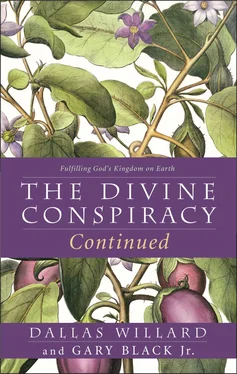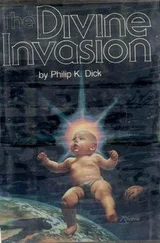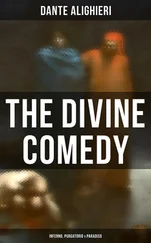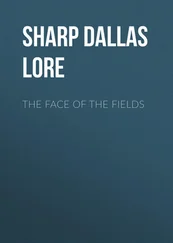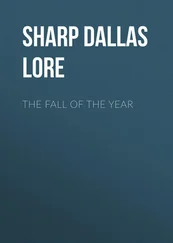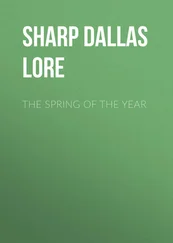“You don’t mean the USC, as in the Trojans’ USC?” I asked.
He assured me I had understood him accurately.
My head was spinning. An ordained Southern Baptist minister who taught philosophy at one of the most prestigious secular universities in the country? I was more than a little intrigued at the iconoclastic possibilities. That little résumé, along with the title of the book, caused a surge of hope and excitement to stir within my heart. Could someone possibly have found a way to break out of the Christian bubble I felt closing in around me? I agreed to read the book.
As it turned out, In Search of Guidance, which was followed by The Spirit of the Disciplines, began to reveal a spiritual life that was significantly foreign to my previous Christian experience. Little did I know at the time, but those two seminal works allowed me to take the first steps on a journey that I had been yearning to take, even though I was not fully aware of my longing. I am not alone. Increasing numbers of Christians are looking for a reality that is as big as the beliefs we profess. I knew, I just knew, there had to be more to my faith than mental assent to a set of doctrines and practices. I knew that reality was not limited to all that I saw around me. I hoped against hope that there was more to this life and to life in the kingdom of God than hanging on by my fingernails until I died and entered eternity. I knew there had to be a greater purpose for both my life and all of creation than was currently being realized. I was a closet, hopeless, C. S. Lewis–esque romantic who deeply longed to find a Narnia. And just when I was about to let go of that lingering sense of what the world could be, to begin rationalizing away my dreams and longings as nothing more than misplaced exuberance and youthful naiveté, God used Dallas’s insights and wisdom to stoke those fading embers of hope in my heart and mind.
Still, this transformation wasn’t easy or quick. Keith was a willing and able guide, and together we waded purposefully and sometimes painfully through the pages of Willard’s work—often staying stuck on one idea for weeks on end. Keith was patient and committed, despite my stubborn resistance to the revolutionary ideas I was encountering. What was most compelling to me, then as now, was the level of courageous critique I discovered in Willard’s writing combined with an encouragement to seek a deep level of personal authenticity. This blend of critical analysis and a vision for change was missing in most other Christian authors of the time and more accurately reflected the style, rigor, and insight of Dietrich Bonhoeffer’s works. Still, my traditional evangelical roots kept me mildly skeptical of Willard’s description and use of the spiritual disciplines. It all sounded a little too “Catholic” or works-centered for my “Protestant” grace-first tradition.
A short time after finishing The Spirit of the Disciplines, Keith invited Dallas to come to our church to speak at a weekend retreat and then preach the following Sunday morning. I eagerly anticipated meeting Dallas. To say the retreat was influential would be the height of understatement. I would learn later that Dallas was lecturing from notes that would eventually become The Divine Conspiracy . I was captivated by his lectures. Dallas solved the grace-versus-works dilemma in the first half hour. His words seemed to tax every inch of my being. My mind hurt from the challenge of wrestling his elusive ideas to the ground. My heart ached from both the level and degree of inspiration. My body was fatigued because I was not used to this level of exercise of the spiritual muscles of contemplation, meditation, focus, and study.
Yet the most compelling and memorable aspect of that weekend was the effect that the authority and power of his teachings on the nature of the kingdom of God had on my vision and understanding of the purposes God had for my life. Dallas was the first teacher or minister I had met who inspired me to pursue the idea that I could know Jesus—really know him, and be convinced of that fact—in an experiential and relational way.
When Dallas spoke, I sensed that I had encountered a man who knew Jesus just as completely as the original disciples—John, Peter, or even James, Jesus’s brother. There was an undeniable authenticity in his teaching that emanated from a unique combination of the way he spoke and what he described; he almost seemed to reminisce about Jesus as if he had just moments before been on the Sea of Galilee with the other disciples, rowing along in Peter’s fishing boat, telling stories, hearing new teachings, and witnessing miracles. The nature of the testimony Dallas gave of his experience of the kingdom of God was so fresh, it was as if I could still smell the aroma of fish on his clothes and hands. Of course it wasn’t fish; it was, instead, the savory essence of authentic relationship. It was then, for the first time in my life, that I believed Jesus was actually knowable in much the same way I knew any other person. Not as a myth, an elusive mirage, or a historical relic, but as a living, talking, engaging, personal reality. Dallas helped me to discover something more grand, far beyond just religion or profession of belief. Dallas introduced me to the possibility and benefits of knowing and loving Jesus as he actually is, in the minute-by-minute experience of my existence.
Dallas’s objective for that retreat, and the many other retreats and conferences that I attended over the years, was to open the doors of the kingdom of God and invite everyone in. I remember remarking to my wife after that first evening of lectures that Dallas reminded me of Willie Wonka in Roald Dahl’s Charlie and the Chocolate Factory . Not that Dallas was silly or fanciful. In fact, he appeared quite the opposite. But the Wonka analogy came from the similar way that Willard stood at the threshold of the kingdom of God and, with glee and the kind of excitement that comes only from encouraging the hopeful anticipation of children, invited us into the most wonderfully delicious experiences that life could ever offer. And I, like Charlie, was awestruck—not by Willard, but by the tales he told of his experience inside God’s amazing castle of wonders. Willard invited us in, all of us, telling us and showing us we have nothing to fear and everything to gain.
In the many years since, I’ve listened to numerous stories similar to mine. People from all walks of life, often deeply steeped in a particular faith tradition, tell of sensing that Dallas was revealing the gospel for the first time as “good news” and not simply the opposite of “bad news.” Congregants, students, doctoral candidates, pastors, philosophers, and psychologists alike were routinely stunned to see how Dallas was able to use well-known and familiar scriptures and weave an altogether different theological conclusion from them. I routinely watched Dallas, like no one I had encountered before or since, wipe clean people’s vision of who God was, what his Son did and why, and what the Holy Spirit wishes to do in and through his church and then replace it with an all-consuming, hope-filled, grace-empowered, joy-seeking, love-giving gospel of God’s boundless goodness and power. All the while he never manipulated emotions, overcame people’s will, or used fear as a motivator.
I can’t remember the number of occasions I’ve been asked when I was “saved.” Since meeting Dallas I have several ways I can answer that question. One answer is that Jesus saves me from myself nearly every day. Another is to tell of the day when, as an eight-year-old boy, I realized and confessed my need for a savior. In that manner I can consider myself “saved” very early in life. But that is certainly not the only time God has saved me. I have been saved so many more times in my life than that original decision would suggest. One of those miraculous saving events occurred during that retreat. God corrected my view of him. He opened a window into the eternal reality of life, life as I had hoped it could be or thought at times it should be. Dallas confirmed that those deep instincts were even more grand than I could expect or imagine. And the God who created and called me into that life stood with open, loving arms and the offer, “Whosoever will may come.”
Читать дальше
